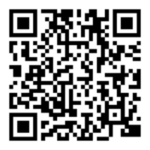There may be an economic downturn ahead — here’s how to stay in front of it.
If you feel like you’ve been spending more without getting more — especially on items like gas, groceries and household bills — it’s not your imagination. Consumer prices are up 8.5 percent between March 2021 and March 2022— the highest rate in 40 years.
There are a number of factors contributing to the rise: the global pandemic, increased demand for products, supply chain issues and the war in Ukraine, to name a few. To combat inflation, the Federal Reserve just raised interest rates a half point, the largest increase in 20 years, with more potential hikes on the horizon.
All of these elements are causing financial experts to warn of a possible recession. A recession is defined as a sustained period of time in which businesses lose money and industry produces less product. It also results in decreased consumer spending, decreased household incomes, stagnant wages, lower housing prices and a downturn in the stock market.
The good news is that the United States economy is cyclical. It goes through highs and lows, and downturns are often followed by growth. But that doesn’t make the lows any easier.
However, if you make a few tweaks to your financial life, you could put yourself in a better position in case the US does get hit by a recession this summer. Overall, it’s a good time to spend less, save more, and earn more.
Here are a few ways you can financially prepare.
Evaluate your budget
Now is the time to look through your expenses and figure out if you are in a position to cut back on spending. Inflation has made most things pricier, so a helpful approach is to look at each purchase through the lens of a want or a need.
Simple changes include meal planning rather than dining out, buying gently used clothing or supplies instead of new items, and taking advantage of sales and deals. Additionally, curbing a rarely-used streaming service, canceling unused subscriptions and shopping around for a less expensive cell phone plan are quick ways to add a few extra dollars to your monthly budget.
More to your emergency fund
With that extra money saved every month, add more to your emergency fund. When built up, this fund can help provide a cushion against unforeseen expenses and, worst case scenario, recession-related unemployment. Experts recommend having three to six months of expenses set aside in an emergency fund.
Look for a high-yield savings account — the best place to store money during a period of market volatility — and set up an amount to be deposited automatically each month. Bonus points if the account is connected to your main bank account but also slightly harder to get to, so it’s easier to save. (Just keep in mind bank transfers can take 1-2 days, if you need to access funds.)
Pay off high-interest debt accounts
The Federal Reserve raising interest rates means that payments will go up on most debt with variable interest rates, including mortgages, car payments and credit cards.
Look through your debts and start to pay down any high-interest bills, credit cards and loans to ensure your monthly bills don’t go up, and you don’t end up paying more in interest — and less of that principal balance — down the road.
Side hustles to earn extra money
If you’re in a position to take on extra work, now is the time. Fortunately, there are many ways to fit a side job in during hours that work with your schedule. Driving an Uber or Lyft, delivering grocery orders through a service like Shipt, or even selling items on eBay or Marketplace are all ways to make extra money when it’s convenient for you.
If it’s possible, put the entirety of your side hustle income toward those high-interest debts, or direct it to savings to quickly build up that emergency fund.
Add to your skill set
Unemployment levels can rise during a recession, so consider ways you can make yourself more valuable to current or future jobs. Add to your skill set by taking a class, attending seminars or engaging in additional training. Thanks to technology, most of these educational opportunities are available online, and often allow you to learn when it’s convenient for you.
Additionally, work on updating your resume, improving your website and fine-tuning other employment-seeking tools. That way, you’ll be ready to hit the ground running in a worst-case scenario.
Finally, stay calm.
Now is not the time to panic. Remember that recessions can’t last forever. Stay disciplined, stay on budget and pay attention to your spending and saving, and you can stay stable during a recession — and maybe even emerge on a better financial footing.




